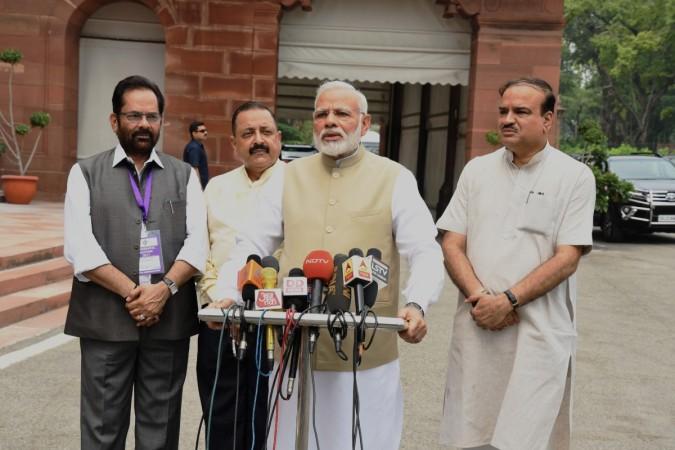
The central government is unlikely to table the controversial Financial Resolution and Deposit Insurance (FRDI) bill in Parliament during the Budget session, as the house gives the joint committee an extension for submitting its report.
Lok Sabha Speaker Sumitra Mahajan stated that the upper house has extended time granted to the joint panel "up to the last day of Budget Session, 2018," news agency PTI reported.
This development comes when many have been raising concerns about some of the clauses of the bill, which was introduced in the Lok Sabha in August this year.
Why economists and Indian middle class feared the FRDI bill in the current? The clause 52 of the draft legislation. The proposed law puts a "bail-in" provision under clause 52 which would give legal powers to a specially mandated authority called the 'Resolution Corporation' to invoke the bail-in clause, which can modify the deposit if the bank in question is on the threshold of becoming commercially unviable.
The joint committee has sought an extension to submit its report before the parliament as it thinks the report won't be ready for presentation by December 15.
"As the House was adjourned after making obituary references. Hence, I have on behalf of the House, granted extension of time," the Lok Sabha Speaker said during the zero hour of Lok Sabha.
The bill aims to place a framework for overseeing financial institutions such as banks, insurance companies, non-banking financial services (NBFC) companies and stock exchanges in case of insolvency, reported the agency.
Recently, West Bengal Chief Minister Mamata Banerjee called the bill "Draconian" and wrote to Union Finance Minister Arun Jaitley requesting the immediate withdrawal of the FRDI Bill. In a letter, she said people will lose faith in the banking system if the Bill is not withdrawn.
"I will like to sincerely appeal to the Centre to desist from enacting this Draconian law and withdraw the bill to ensure that the common people in the country are saved from financial ruin," Mamata wrote in her letter.
Market experts also believe that the "bail-in" clause in the draft legislation could bring in potential harm to deposits of common people.
Currently, all deposits up to Rs 1 lakh are protected under the Deposit Insurance and Credit Guarantee Corporation Act, which is sought to be repealed by the proposed bill.
However, union finance minister Aurn Jaitley, lask week said that the government would fully protect public deposits in financial institutions.








